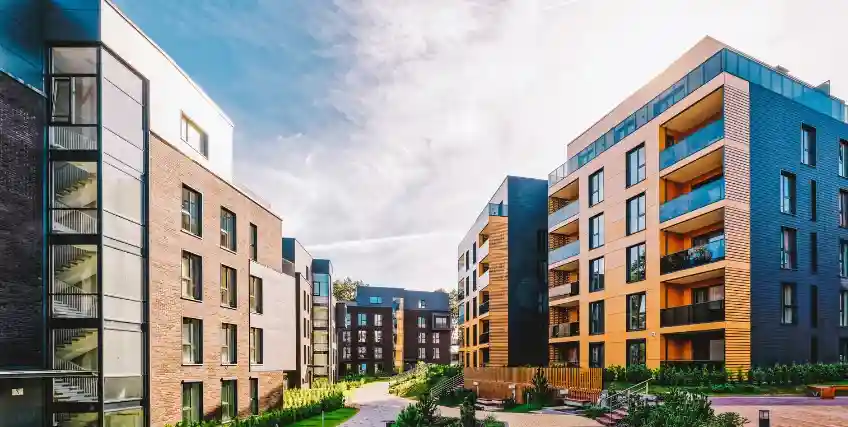How Commercial Land Lenders Support Infrastructure Projects in Growing Cities
November 01, 2025 | Last Updated on: November 01, 2025

In today’s times, cities across the world are expanding fast. New neighborhoods, highways, and commercial centers are reshaping the skylines of the cities. However, none of this growth would have been possible without land and money. Developers need access to funds to acquire and prepare that land.
That’s where the commercial land lenders step in. These lenders offer financial support that helps turn raw land into productive spaces. Their involvement is crucial in developing roads, industrial parks, commercial properties, and mixed-use zones.
As the land becomes scarcer in city centers, lenders start exploring opportunities in suburban and emerging zones. These areas, often overlooked by traditional institutions, offer strong potential for long-term real estate investment and community development.
In this article, we’ll see how commercial land lenders fuel the growth of infrastructure in growing cities. We will also discuss what makes lending unique, and what types of projects are funded by these commercial land lenders.
Who Are Commercial Land Lenders and What Is Commercial Land Lending
Commercial land lenders are financial institutions, private investors, or non-bank entities that provide funding especially for purchasing and developing land for commercial use. Unlike lenders who focus on fully built properties, these commercial land lenders understand the risks and rewards of financing raw or undeveloped land. Their funding makes it possible for developers to secure land for future infrastructure, industrial parks, or commercial centers. This serves as a catalyst for regional growth and urban expansion.
Commercial land lending is a part of commercial real estate financing and provides loans for acquisition and development of land for business purposes. These commercial real estate loans are not tied to income-generating assets. Instead, they support the transformation of vacant plots to owner-occupied properties. Because of the inherent risks such as zoning delays, environmental assessments, and uncertain cash flow, commercial land loans are structured with care. However, their terms often include flexible repayment plans, higher interest rates, or shorter durations compared to typical commercial real estate loans.
Commercial land loan options vary based on project size, location, and borrower profile. Some developers may seek SBA-backed loans or fixed-rate term loans, while others rely on bridge loans or even loans for hard money for commercial real estate ventures. What remains constant is the commercial land loan lender’s role in funding the earliest and often riskiest phase of development: the land itself.
Role of Infrastructure in Growing Cities
Infrastructure is the foundation of a functional city. Roads, bridges, power lines, and sewage systems all fall under this umbrella. So do commercial zones, transportation hubs, and public service facilities. These physical systems enable cities to operate efficiently and attract long-term investment.
Here are some of the important roles of infrastructure in the growing cities.
The Growing Demand for Urban Services
When a city grows, it needs more than housing. It needs spaces for businesses, schools, hospitals, and industries. These services require reliable infrastructure to operate. The better the infrastructure, the more attractive the city becomes for investment and living. Urban infrastructure also enhances quality of life and public safety while stimulating economic activity.
The Global Infrastructure Investment Gap
According to a recent report by the Global Infrastructure Hub, the world will need to invest around $94 trillion in infrastructure by 2040. This is important to keep pace with economic and population growth. Additionally, this forecast reflects how critical long-term real estate financing and commercial land loans are for enabling urban expansion and sustainability.
Financing the Urban Future
Modern cities aren’t built overnight. They require years of planning and a dependable flow of working capital. This is why commercial real estate lending is essential. Infrastructure projects often have long development timelines. That’s why commercial land lenders provide essential funding when traditional institutions might hesitate. Without these financing options, many vital projects would remain on paper rather than coming to life in concrete and steel.
How Commercial Land Lenders Support Infrastructure Projects
Understanding how commercial land lenders contribute to infrastructure projects helps illustrate their importance beyond financing. These lenders step in early often before construction begins and help shape the foundation of city development.
Here's a closer look at the multiple ways they support progress.
Funding Land Acquisition
Commercial land lenders play a hands-on role in funding early-stage infrastructure projects. Their loans help developers secure strategic plots of land before construction even begins. These early investments ensure that developers don’t miss out on high-potential land parcels located near future growth corridors.
Bridge Financing for Immediate Needs
Many lenders offer bridge financing. This type of short-term loan helps kick-start a project while long-term funding is being arranged. It's especially helpful when developers must act fast to secure land near planned public works, highways, or rail lines.
Collaborating with Government Programs
Some lenders also work alongside SBA 504 programs or public-private partnerships. These collaborations combine government and private investment to fund civic projects like affordable housing, schools, or transit hubs. This shared-risk model accelerates project timelines and improves local infrastructure outcomes.
Site Preparation and Infrastructure Readiness
Another way commercial land lenders support development is by funding the site preparation phase. This includes land grading, adding utilities, and obtaining zoning approvals. These steps are expensive but essential. Without early funding, projects stall before they begin, delaying broader city development.
Refinancing and Cash Flow Management
Lenders also support commercial mortgage and cash-out refinance options for CRE investments. These refinancing tools improve cash flow and help developers reinvest in new opportunities. Strategic refinancing allows developers to reposition their investments while maintaining capital for future growth.
Types of Projects Funded by Commercial Land Lenders
Commercial lenders assess the land’s future value and business needs of the borrower. This helps in offering the right loan amount and repayment terms. For instance, a commercial loan for a high-demand property type may come with a lower down payment and amortization schedule.
The scope of projects supported by commercial land lenders is wide. Here are some examples:
- Road expansions and highway development: To improve traffic flow and connect to new zones.
- Transit-oriented development: Retail and multifamily housing near major transit hubs.
- Industrial parks and logistics zones: Near ports, airports, or highways.
- Utility infrastructure: Water treatment plants, energy grids, and broadband access.
- Mixed-use developments: Real estate investment spaces combining residential, retail, and civic functions.
Conclusion
Commercial land lenders do more than just offer capital. They support infrastructure growth, improve cash flow flexibility, and create access to real estate investment opportunities. By offering business loans, lines of credit, and refinancing tools like cash-out and SBA loan options, they provide end-to-end financing solutions.
If you're seeking commercial real estate investment loans or want to explore the best lenders for commercial real estate projects, now is the time. Commercial land lenders offer flexible pricing, credit approval support, and expert guidance.
Ready to grow your project with a commercial real estate loan? Review your loan options, connect with lenders, and compare offers with FDIC-insured institutions.
Frequently Asked Questions About Commercial Land Lenders
Who is a commercial land lender and how are they different from traditional banks?
Commercial land lenders are financial institutions or private investors who focus on financing underdeveloped land for business use. These lenders often provide flexible terms, especially during the early phases of infrastructure development. However, traditional banks typically fund developed and income-producing properties.
What types of infrastructure projects do commercial land lenders typically support?
Commercial land lenders help in funding a wide range of projects. These are road expansions, transit-hubs, mixed-use spaces, industrial parks, and utility networks. These developments are majorly in rapidly growing urban or suburban zones.
Can small business owners qualify for commercial land loans?
Small business owners may qualify for commercial land loans through various options like SBA 504 loans or fixed-rate term loans. However, qualifying for these loan options depends on their credit profile and project scope.
What are the risks involved in commercial land lending?
There are numerous risks involved in commercial land lending. Since the land is undeveloped, risks like zoning issues, project delays, or slower-than expected ROI may arise. However, lenders often mitigate these risks by evaluating borrower experience and project feasibility.
What loan terms are generally available from commercial land lenders?
The loan terms offered by commercial land lenders vary based on the project and lenders. However, borrowers might find options such as short-term bridge loans, fixed-rate term loans, or interest-only per




